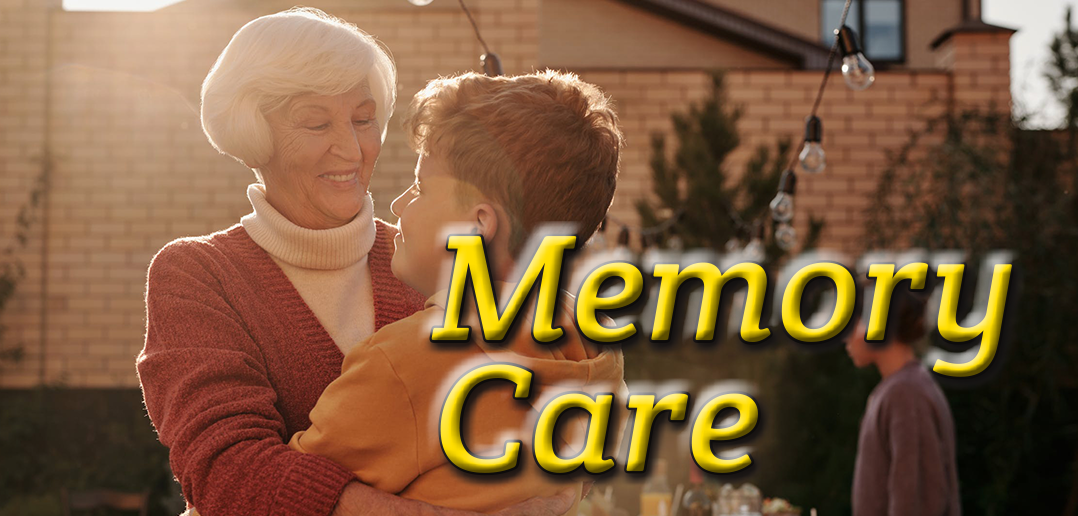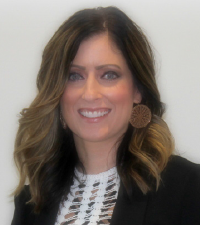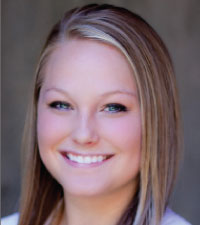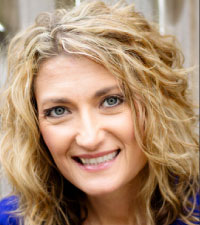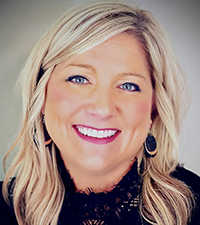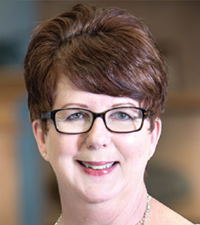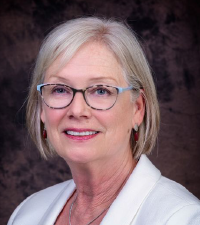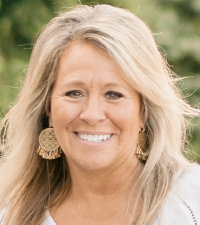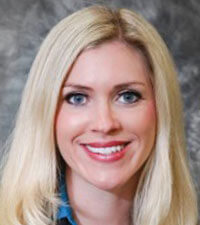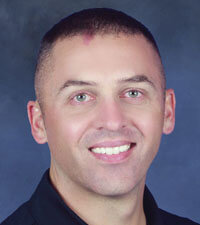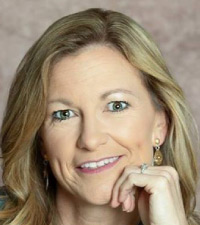With aging comes an increased risk of suffering from memory loss and forgetfulness. Names are harder to recall, keys are never where they were left, and wallets tend to go missing. Though it is not a normal part of aging, it has become incredibly common; according to a report from the CDC, one in nine Americans aged 45 and older testified that they had a decline in their memory. When memory loss begins to disrupt one’s daily life, it should be treated as a sign of dementia. Caring for an individual suffering from dementia can be incredibly difficult, and when the individual is a loved one, it can also greatly affect the caregiver emotionally and even physically.
According to the Alzheimer’s Association, more than six million Americans are living with Alzheimer’s disease, and one in three seniors die with some form of dementia. Though it is becoming more common throughout the country, it is no easier to live with or watch a loved one lose their memory. Memory loss is a scary and uncomfortable condition to experience, both as the individual and as the caregiver. We spoke to some local businesses and professionals about how they can help you care for your loved one with memory loss.
A Homelike Atmosphere
Memory loss happens in various stages, so the programming at Pemberly Place (pemberlyplace.com) is designed to meet all levels of the process. Whether changes in one’s memory are just beginning to be noticed, or if you are looking for dedicated Alzheimer’s care, Pemberly Place’s communities have environments designed to accommodate people with memory loss and allow them to maintain their freedom, mobility, choice, and independence.
“It’s our team’s goal to create moments of joy in a homelike atmosphere,” said Director of Marketing Kelly Mans. “The memory care team takes specialized education multiple times per year, so that each resident who calls our memory care ‘home’ will have a resident-centered approach to their daily care needs.”
Memory care at Pemberly Place includes all of the amenities and services that come with assisted living, as well as the additional comfort and assurance that comes with knowing your loved one is safe within a secure environment.
“We spend lots of one-on-one time with the residents because they need the physical and emotional support,” Kelly said. “Our services here are to continuously work the residents’ minds with hand-eye coordination activities and brain-stimulation activities. We also have an on-site clinic and an APRN (Advanced Practice Registered Nurse) that comes out weekly to assess our residents, as needed. The goal of Pemberly Place in working with memory-loss residents is to make them feel at home as much as possible.”
A Nurturing Environment
Seniors facing the challenges of Alzheimer’s disease and other related dementias need a safe, nurturing environment. At Sumner Place (sumnerplacecare.com), they specialize in individualized programs designed to reduce feelings of confusion, fear, and agitation and offer meaningful, enjoyable activities that stimulate the mind and body. Their services focus on the resident’s wide range of abilities.
“Dementia can be a long and unforgiving journey for all who are involved,” said Sumner Place Admissions and Public Relations Coordinator Megan Herter. “It is impossible to truly understand the fear, confusion, and emotions that those who suffer from dementia struggle with on a daily basis. Dementia does not just affect memory loss, but also the ability to communicate and understand what is going on in the world around them. At Sumner Place, we educate our team members on effective communication skills so that the resident can be successful in their daily lives.”
One example of these programs is Buddies Forever, a comprehensive dementia program. It employs techniques and skills such as getting down below eye level, using simple statements, and endorphin boosts – to name a few – to create a foundation for person-centered care.
“It is also very important to remember that we, as caregivers, are now living in their world; they are not living in ours,” said Megan.
Sumner Place focuses on the strengths of each resident by using their historical and personal interests as a method of minimizing the difficulties associated with dementia related symptoms. This could be something as simple as giving a former painter a paint brush. Sumner Place is also certified in Music & Memory, which taps into the long-term memory, an area of the brain unharmed by dementia. Selecting the appropriate music for each resident triggers pleasurable emotions from their past.
“We work closely with residents’ families to figure out not just the genre of music they listened to during their peak years (16-26 years old), but the specific songs,” Megan explained. “The purpose is to give those who suffer from cognitive and physical challenges a more meaningful connection. Researchers have observed team members and family participants report observations of participants having an elevated mood, higher levels of engagement, and note positive environmental and facility culture changes. This is just one of the many ways we support our memory care residents.”
Where Your Loved Ones Remain Loved
Seniors with dementia have a wide range of abilities, and their needs change as their condition progresses. High-functioning adults may need only minimal support, while severely impacted individuals may require around-the-clock care. Tabitha (tabitha.org) addresses these diverse needs with a broad range of memory care services within the Tabitha Senior Care Continuum. Their unified resource base and continuum navigation continuity make it easier to adjust to each person’s changing needs.
“We offer in-home support and assisted living,” said Senior Living Advocate Aubrey Paulsen. “Our Meals on Wheels program gives individuals a warm, nutritious lunch – plus the benefit of someone checking on their well-being each day. We also offer home health care to help seniors with medications, at-home therapy, or recuperative medical care. GracePointe is a special assisted living community that provides compassionate care with a maintenance-free lifestyle, leading-edge technology, and enriching activities focused on health and wellness. This allows seniors experiencing dementia-related memory loss and Alzheimer’s disease to enjoy all the richness of living in a safe and reliable environment that families can trust. It’s never too early to start planning for future needs.”
Another great option for memory care is Wilderness Hills by The Waterford Communities (thewaterford.net). Wilderness Hills is a specialized memory care home that offers individualized care, a high staff-to-resident ratio, and puts emphasis on the “Three C’s”: Customer Service, Commitment to Dignity, and Compassion. Wilderness Hills provides memory-specific needs, such as sensory stimulating activities, personalized one-on-one activities, and tranquility and sensory rooms.
“We want to make our residents feel safe and loved, and remain as independent as they can,” Executive Director Gracia Kremer said. “Our smaller-sized communities allow us to hone in and individualize care and activity plans to meet the needs of each resident, where they are in their own journey. Your loved ones won’t be treated like patients at Waterford. They are embraced and loved as part of the family. They are not our houseguests, but rather, we are theirs. This is their home, and it is our responsibility to ensure that irrespective of their challenges.”
Staff at Wilderness Hills believes that caring goes beyond simply being a safe place with a list of amenities – they welcome and embrace your loved one into their family. Wilderness Hills is home to the residents, so staff engage with the seniors as houseguests.
“Each member of our team has one mission—to connect with our residents on a personal level,” Gracia said. “Our communities provide our residents and families with a homelike atmosphere and our team members provide our residents and families with excellent care through compassion and connection.”
The Legacy Way
Founded in 1995, Legacy Retirement Communities (legacyretirement.com) have been distinguished as leaders in the senior living industry and have earned numerous local and national awards for their elegant assisted and independent living retirement communities, and their world-class service and programming. Legacy has four assisted-living communities, one of which is devoted exclusively to memory care. Legacy Arbors is a state-of-the-art memory care community that honors the lifetime of experiences and interests their residents have.
“We provide memory care ‘The Legacy Way,’” shared Activity Director of Legacy Arbors Michele Carlson. “We have all of the same amenities as our other three retirement communities in a safe, secure environment. Our social programming is geared towards each individual’s needs. We want each resident to have quality of life and that can be different for each person. We use their life story, which allows us to know their individual needs and to connect with them in order to become friends, because a friend knows your story.”
At Legacy Arbors, they encourage residents to use current abilities, interests, and creativity while building relationships with other members of the community. Daily exercises help residents maintain physical health and innovative yoga classes help both mind and body. Card and table games, movies, and old-time TV shows are popular activities as well.
“Our goal is for each resident to be happy and enjoy each day to the fullest,” shared Michele. “Our staff is CDP trained, and that means each member of the staff understands dementia and the process, and what is happening with our residents. Understanding the process of dementia allows us to help the resident navigate some of challenges and difficulties they may face.”
If a memory care facility may be in your loved one’s future, it’s best to begin planning now. Many memory care communities have a wait list, so Michele suggests being proactive and taking tours now to find out what is available and what your options are. She wants to remind those who are looking that memory care communities are designed to meet the needs of your loved ones and help alleviate the stress of caregiving.
“Legacy Retirement Communities loves to help,” said Michele. “We are dedicated to providing the level of care you need.”
Making Every Day the Best Day
CountryHouse Residence for Memory Care (countryhouse.net/l/lincoln-nebraska) is part of the Agemark family of senior living communities, and has multiple locations across Lincoln devoted exclusively to caring for seniors with Alzheimer’s and other dementias. Their friendly staff takes pride in their work, feeling like their employment is much more than “just a job,” according to the 2021 Best Workplaces for Aging Services report. To learn more about CountryHouse’s goals for helping seniors with memory issues, we spoke to Agemark’s National Director of Life Enrichment, Marcia Houchin.
“In a nutshell, our goal is to make every day the best it can be for each person,” said Marcia. “This is accomplished by creating ‘Moments of Joy’ through a variety of physical, social, spiritual, and intellectual activities. Individual personalities and preferences are also considered, and it’s important to treat people with respect and focus on their abilities rather than their losses.”
Marcia also shared some signs of memory loss that families should pay close attention to as their loved one ages. Occasional forgetfulness is a typical age-related change, but memory loss that disrupts daily life is a big indicator of something more serious. Other signs include challenges in planning or solving problems, difficulty completing familiar tasks, confusion with time or place, decreased or poor judgement, and changes in mood or personality. Of particular concern are potentially dangerous incidents, like forgetting to shut the stove off, leaving the house and forgetting how to get back, or a car accident or fender-bender.
“Early diagnosis is important, so if you notice signs of memory loss, get a full medical evaluation to determine if it’s Alzheimer’s or something else,” advised Marcia. “Knowing will help give you direction for planning: where to go for more information, what in-home care alternatives and support systems are available, how to make the home safe, and when to seek placement.”
In addition to recognizing the signs of memory loss, Marcia also reminded us of the challenges that come with caring for a loved one with dementia. As the dementia progresses, it becomes more difficult – for both the caregiver and the senior – to continue at-home care.
“Challenges will change as the dementia progresses,” Marcia said. “In the early stages, an individual may be frustrated or even depressed by increasing difficulties due to memory loss. Conflicts arise when the family and their loved one disagree about safety concerns or the need for more help. In later stages, the individual becomes less aware of their memory loss. As confusion increases, it becomes harder for family members to continue providing in-home care. It is especially difficult for families when their loved one’s personality changes or they don’t recognize family members. Families who don’t live nearby should make plans for care and oversight when their loved one begins to exhibit behaviors that put their safety and well-being at risk.”
If it’s time for your loved one to move into a memory care facility, CountryHouse has a large selection of services available to assist with care. In addition to the offerings that are expected, such as daily meals, health and personal care, 24-hour staff, housekeeping, and transportation, CountryHouse staff also receive specialized dementia care training. Their robust life enrichment program follows industry best practices for the care and treatment of those with dementia, and activities are designed to maximize whole-person wellness and keep residents engaged seven days a week. Their signature daily drive greatly reduces the late-day restlessness experienced by many with dementia. Agemark’s memory care communities also offer unique programs to support families, both before and after their loved one moves in. They want families to rest assured that their loved one will be well taken care of and remain active, and not stuck inside the facility. At the end of the day, however, CountryHouse understands that moving someone out of a home to an unfamiliar environment is difficult, even traumatic. That’s why they offer no-risk alternatives such as day stays and short-term overnight stays.
“Agemark is one of the most experienced leaders in dementia care,” said Marcia. “While many services can be provided in-home, it is difficult to match the range of activity engagement we offer – particularly social activities. Interacting with others is one of the most complicated things that human beings do, so even a healthy brain will atrophy when you take that away by isolating a person at home. Visit one of our facilities today to see what we have to offer, and further learn how we can take care of your loved one.”
Enhancing the Quality of Life
If you are looking for in-home care options, Visiting Angels (visitingangels.com/lincoln) offers specialized dementia and Alzheimer’s care. They strive to help your loved one to maintain their independence while remaining in their home. They can help with everything from bathing and dressing assistance to incontinence care, companionship, transportation, meals, and so much more!
“Visiting Angels focuses on meeting the client where they are in their abilities to enhance their quality of life,” explained Julie Day, client care coordinator. “We educate our caregivers on their client’s needs and develop an individual plan for each client. Quality of life for some clients may be a very busy day with activities and goals for the day. For other clients it may be important to be a friend and companion while providing assistance with basic needs and reminiscing with them. Again, we rely on good communication with clients and their families while we accompany each of them on their journey.”
Julie recommends giving Visiting Angels a call as soon as you are considering looking into home care. They are flexible with your love one’s changing needs, and it is beneficial to have a familiar caring team in place ahead of time. When the needs go from occasional visits, transportation, or companionship to more necessary things such as personal care assistance, you will already have a resource and caregivers that you know and trust available to you.
“Sometimes the family is the last to recognize changes in their loved one because those changes are so gradual,” said Julie. “Your loved one is also very good at covering for themselves and hiding the fact that they are not taking their medications regularly, eating good meals, or showering. Asking them if they are doing these things is not sufficient – you have to check on them and observe their surroundings. Look for medications that haven’t been taken or get misplaced. If your loved one is not changing their clothes, that might be an indication they’re not showering. Check their refrigerator for food that has expired; they may be eating expired food because they don’t know any better.”
A common challenge for seniors with memory loss, Julie explained, is taking medications regularly and on-time and eating nutritious meals. Isolation is also a factor in seniors’ decline, particularly due to the epidemic. Visiting Angels’ caregivers are able to keep clients on track with medications and regular meals, and can offer companionship throughout it all.
“Whether we are just visiting with a client or taking them out and about for some socialization, they are enjoying the extra attention and fellowship a caregiver can bring to their lives,” Julie shared. “This is especially important when a senior does not have family nearby. We put a lot of care into each client-caregiver match for compatibility. We communicate regularly with families who are far away regarding the needs and progress of their loved one. Visiting Angels wants to keep their clients happy, and good communication is key to happy clients!”
Julie also reminded us of one of their often overlooked benefits: respite for the main caregiver. Any person who is regularly caring for a loved one can use a break to avoid getting completely burned out or possibly sick themselves. Ultimately, Visiting Angels strives to be able to help their clients however they need.
“Visiting Angels is very hands on when getting to know our clients and filling their needs,” said Julie. “Our relationships with our clients are long lasting when compared to other home care companies due to the care we take in matching clients with caregivers and our commitment to on-going communication. Feel free to reach out to Visiting Angels if you have any questions about home care, dementia, and Alzheimer’s, or for resources available for your loved one’s changing needs. We can provide a free in-home assessment and would love to meet with you and answer all of your questions!”
No More Compassion Fatigue
Constant worry comes with having a loved one with memory loss. Home Care Partners (homecarepartnersofnebraska.com) has memory support caregivers available to provide peace of mind knowing a loved one is not alone. Their caregivers offer assistance in personal tasks, such as bathing and grooming, as well as being a companion. Care partner services combined with Care Management can have a profoundly positive effect on the physical and emotional health of informal caregivers (such as family, friends, neighbors, and volunteers) who might otherwise encounter burnout or compassion fatigue.
“Caring day in and day out for loved ones can make you vulnerable to compassion fatigue, which is the emotional, physical, and spiritual apathy that results from the constant demands of caring for others,” said Home Care Partners Certified Dementia Practitioner Karla Frese.
Compassion fatigue has been described as ‘running on empty’ and happens when informal caregivers focus on meeting the physical and emotional needs of their loved ones at the expense of their own. It is important for these informal caregivers to recognize ‘when it all becomes too much’ and it is time to reach out for help. Tolerating it or bottling up their feelings can have dire consequences on their health and well-being, and that of their loved one.
“Placing your needs last can cause an imbalance between activities that nourish you and those that deplete your strength,” said Karla. “Life-balance can be found with the support of a team, and our care management. Recognize the signs of compassion fatigue and reach out for help. Remember that self-care habits include good nutrition, sleep, daily practice of relaxation, and nurturing activities. Making your own health and well-being a priority enables you to continue caring and embrace your role as a wife, husband, daughter, son, friend, etc. with compassion and empathy.”
Some signs of compassion fatigue to look out for include:
• Feeling exhausted physically and psychologically
• Feeling helpless, hopeless, or powerless
• Feeling irritable, angry, sad, or numb
• A sense of being detached or having decreased pleasure in activities
• Physical symptoms, including sleep and appetite disturbances, nausea, and dizziness
“Our services let families rest and restore themselves while also giving them peace of mind to allow their loved one to stay in their familiar place.”
If you or someone that you know is experiencing fatigue from caring for a loved one, please reach out to Karla to set up a meeting to create a specific plan to meet your needs that will reduce the stress.
The Right Match
Maybe your loved one isn’t ready to be in assisted living, and you’d like to keep them in the familiar place that they know and recognize. Being the sole caregiver of a loved one with memory loss can be difficult and overwhelming, so contact CCA Home Care (ccahomecare.com) and learn about how their Nurse Registry can match you with the right caregiver to help you look after your loved one.
The Nurse Registry screens and refers caregivers who work for families. The care is client-directed, ensuring that you make the decisions regarding your care for that of your loved one. This unique service has proven time and again to be of superior quality as evidenced by CCA’s reputation for providing valuable care.
“Clients that we begin services with are typically just starting to notice the difficulties of living independently in their own homes and are starting to need assistance with their daily activities,” said Kyle Johnson, president. “We are the largest Home Care Registry in Nebraska, and our model is different than any other home care provider available to clients. All of our caregivers are licensed CNAs and work as independent contractors for their clients. Before any caregiver is allowed to work with a client, they are run through all background checks, criminal history reports, work authorization in the United States, CPR certified, must carry their own professional liability insurance, and are bonded through our company.”
Sometimes your loved one just needs a check-in and some companion care at the moment, but it could transition into daily needs, such as bathing, feeding, medication administration, and bathroom assistance. Family members caring for a love one often still have to work full-time while also taking care of children or grandchildren, or family may even live out of town and caring for their loved one may not be an option. CCA can provide for daily needs and report to the family directly after a visit. This way, you know your loved one with memory loss is being cared for and has help right there with them.
Another unique feature of CCA Home Care is their ElderCare Resource Handbook. This guide is an all-inclusive listing of services, programs, and other resources available for the aging in each area. By understanding the services, resources, and options which are available locally, CCA hopes seniors and their families can make informed decisions, which have the potential to enhance their quality of life and independence.
“The handbook has information on every aspect of aging: financial, legal, living options, therapies, home health care, transportation, end of life services, and so forth,” explained Kyle. “We want the handbook to make planning easy and act as a one-stop resource for seniors and caregivers to find the people and services they’re looking for.”
Receive Help through the Whole Process
Oasis Senior Advisors (oasissenioradvisors.com) can make finding the right memory care facility simple. There are so many options to choose from that it can be difficult to be sure you are selecting the right community for your loved one. Thankfully, Oasis examines your options and can help you determine the best solution for your loved one and your family as a whole. Owner Beth Friesen is an RN and has devoted the last decade to becoming a dementia expert. In addition to being a nurse, she is also a Certified Senior Advisor, a Certified Dementia Practitioner, and a Certified Alzheimer’s Disease and Dementia Care Trainer. She has even written a book titled I Love Someone with Dementia…So Why Am I Losing My Mind? Beth has appeared on The Doctor’s TV Show, as well as Lifetime Television’s Balancing Act to speak on the subject.
“While we work with all aspects of the aging process and the need for care, this is where our heart lives,” Beth shared. “Those who love someone with dementia have such an immense need for support, knowledge, and to be cared for themselves. We connect families with various community agencies to assist them with everything form Veterans Benefits and Elder Law, to in-home care and transitioning to assisted living or memory care. When people work with us, we become advocates for the entire family.”
Beth explained that the biggest challenges for seniors with dementia is that often, they are unaware they have deficits at all. This can make them reluctant to receive help from others and can put them in a very unsafe situation, leading to great stress for family members who have concern for their loved one. In addition to this, a well spouse who is caring for someone with memory loss is often under significant stress. Combined with the well spouse’s own physical challenges of aging, statistics show that often times the well spouse will become ill or even pass away before the individual with dementia, due to the intense amount of stress caused.
“Once you have a diagnosis of dementia, we should be your very next call,” Beth said. “We can even come in before that and help you access the necessary medical personnel in order to get an accurate diagnosis. At that point, we can come alongside you and help you make a plan for what lies ahead. When there is a diagnosis of dementia, the three main things we focus on are safety, dignity, and quality of life.”
The Oasis process to find the right place for your loved one is as follows:
1. No-obligation consultation. This free consultation will tell you what to expect and how they’re going to help you.
2. Identifying your lifestyle needs. Oasis will hold an in-depth discussion to identify lifestyle preferences, care needs, location, and financial considerations.
3. Reduce your monthly costs. They will help you look into available funding options, such as Veterans Aid and Attendance, Long Term Care benefits, reverse mortgages––anything that can help reduce the monthly housing cost.
4. Personalized list of local housing options. They will provide a personalized list of the local housing options that will best meet your specific needs.
5. Touring the communities. Oasis will set up tours at each community you select, and then go with you until you’ve found the “right place,” and you feel confident with your choice.
“We help with the whole process offering support and education along the way,” said Beth. “We are more than the ‘move’. We are truly an advisor for the journey.”
A Pharmacy You Can Count On
One of the responsibilities that come with caregiving is managing medications. Many caregivers spend time each week dividing medications into a pill pack, picking up refills, and ensuring that their loved one is taking medications correctly and on time. This important routine can be made easier with just one call to Nebraska LTC Pharmacy (neltcpharmacy.com). At Nebraska LTC, they provide individualized patient care that increases safety and prolongs patients’ independence. We spoke to New Patient Consultant and Liaison Gayleen Bradley about the benefits Nebraska LTC can offer to seniors struggling with their memory.
“Almost on a daily basis, I am going to the homes of patients that are struggling to remember to take their medications correctly and on time,” shared Gayleen. “Having the medications set up and ready to go helps tremendously, and that is something that we can offer to seniors with memory loss and their caregivers.”
It can be, and is, scary for both a loved one with memory problems and their caregiver to tackle the task of taking the appropriate medications each day at the correct time. Nebraska LTC can help individuals in these positions avoid the worry of medications interfering with each other or being missed by prepping your daily doses for you in an easy-to-use blister pack. The blister pack acts as a visual clue to both the senior and the caregiver as to whether medications have been taken at the correct time or not.
“We also offer a courier service,” Gayleen said. “It’s common for seniors with memory loss to stop driving, as they begin to have more trouble with the task. Our courier service will take your medications right to your door – at no cost – so you don’t even have to come pick it up. We just want to be able to help with these tasks to make it easier for seniors to stay on track with their medications, and to give caregivers peace of mind.”
Battle Memory Loss with Exercise
Have you ever wondered how staying active might play into navigating and even avoiding memory loss? Jeff Madsen with Right Foot Forward Fitness had some insight for us.
“Seniors, who we refer to as Masters Athletes, have unique needs from both a programming and a recovery standpoint,” Jeff shared. “Keeping your brain active can help to prevent memory loss. Regular exercise has been proven to preserve brain health. Just walking for 20 minutes can help your brain to stay active. Most importantly, staying positive can help your brain function better, so keep a good outlook on life in general even when challenges present themselves in your later years! If you believe you can do something about memory loss, you are likely to see better results.”
Jeff recognizes that memory-impairment brings added challenges for seniors who wish to improve their fitness. Thankfully, his services work for everyone, regardless of age, level, or health concerns.
“At Right Foot Forward Fitness, we offer a Personal Training Track specifically designed for seniors,” Jeff explained. “It starts out with a focus on balance and foot movement, both laterally and vertically. We work on increasing proprioception (knowing where your body is in space) using specially designed drills. Everything can be personalized to meet you where you’re at in your fitness journey.”
Making Adjustments
When the time comes for a loved one to move into senior living, don’t be surprised if they have difficulty giving up some of their treasured physical memories, including furniture, kitchen items, knick-knacks, and the like. If that happens, don’t push hard enough to upset them. Instead, consider getting a storage unit at Store It All (storeitalllincoln.com) facility. The self-storage facility is locally owned and operated by Kingery Construction (kccobuilders.com) and is located at 3321 Ox Bow Circle, just east of North Star High School. They’ll help you protect your loved one’s treasures with the utmost care.
End-of-Life Planning
Pre-planning funeral arrangements is an important step to take when you or a loved one is diagnosed with dementia. Though it might be a difficult or even awkward subject to discuss, pre-planning will allow you to be prepared when your loved one’s time on Earth ends, giving you more time to enjoy with them before that day comes. As a senior, you can also rest assured that your final wishes will be known and that your family will not have to make end-of-life decisions in a rush while grieving. We spoke to Stephanie Springer with Wyuka Funeral Home & Cemetery (wyuka.com) about why it is important to make these arrangements beforehand, and how Wyuka can help.
“The passing of a loved one is one of the most stressful situations people may find themselves in,” Springer said. “Handling your arrangements beforehand makes sense for three basic reasons. First, it will help relieve some of the emotional burden from those you love. Making decisions in advance allows them to concentrate on supporting each other rather than making stressful decisions in a matter of hours. Second, it ensures that your wishes are honored. Pre-planning removes any doubt and makes one of the worst days of someone’s life just a little easier. Finally, it will take the financial worry and burden from those you love because plans were made and funded prior to the day of need.”
Over 20 years ago, the Wyuka Funeral Home was established to further be there for families; they want to help you through the process of planning and pre-planning.
“Myself and the staff at Wyuka are here to help,” said Springer. “No one has ever come to lay a family member to rest and have been upset that all of the details were made in advance. They see it as a gift and are truly relieved that they know exactly what their loved one wanted and know exactly what to do.”
Memory loss is a difficult challenge that many seniors and their loved ones face. Don’t let these difficulties overwhelm you and take away from the time you want to spend with your loved one – contact these local businesses to give you a helping hand and some comfort when you need it most.

